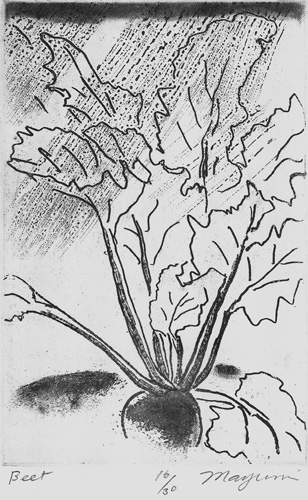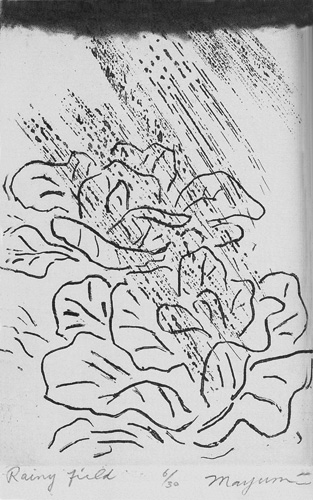One day as I went to refresh myself
In the middle of a meadow,
Many goats and sheep came from all sides
And gathered around me.
Among them, an old sheep spoke:
“Old monk, neither virtuous nor sinful,
I have something to tell you.”
“Alright,” I said. “Come on, tell me.”
He went on: “I have a great favor to request
Of the ‘meritorious’ lamas
Who come gathering alms in summer and autumn.
“The very moment a short-necked, shiny, chubby monk
Arrives at our village door, leading packhorses carrying a lama’s red bundles
He takes a villager with him and comes right toward us sheep.
“The ‘protection cord’ the lama is going to give out
Is for us a noose—
It gets tied around the patrons’ necks—
And soon, by our necks, we ourselves are caught.
“The fate of goats and old mother ewes
Is thus in the hands of visiting lamas.
In this life, in the bardo, and in the next life
There is no other object of hope than the guru,
So, at the time of hope, don’t betray us,
Take pity on us!
“You should let us live out this life,
Or take us to the higher realms in the next one.
Otherwise, if this life is suffering, and so is the next,
We are just being slaughtered and slaughtered one lifetime after another—
Don’t let your wisdom, compassion, and power be so weak!
“Going on to the next life,
We will call aloud to the lamas
with fierce lamentations,
‘Lamas, think of us! Lamas, think of us!’
“Some patrons come, take off their hats,
And say to you lamas:
‘Please, come to our houses.’
When they invite you,
Don’t pretend you don’t know
That your patrons are about to kill us sheep.
Rather, come after having said a few kind words on our behalf.
Otherwise, the time of a lama’s arrival
Means the time for our death.
“So, don’t pretend you don’t know what’s happening,
But come to visit after saying, kindly
‘Don’t slaughter your sheep; set them free.’
“When some lamas enter someone’s house
And seat themselves comfortably upon the throne,
We are being slaughtered right outside the door—
Don’t pretend you don’t know what’s going on!
When there is nothing on earth
You lamas don’t know,
How can you not know about this?
A goat or a sheep is thrown down to the ground.
All the neighbors around can hear
The goat bleating or the sheep being smothered.
Yet people say:
‘Sheep and goats are our livelihood,’
And they just recite, ‘Om mani padme hum!’
“We pray to you from the bottom of our hearts
That, at that moment, you may say something to reprieve us.
When we are gagged and being smothered,
If we could but draw a single breath,
It would be the greatest goodness on earth.

“We have such terrible karma!
When autumn comes, the season for slaughtering sheep,
The fate of the old mother ewes is the worst of all.
If, at that time the compassion
Of even the lamas, which is said to be great, declines,
What will happen to the compassion of those who have so little to begin with?
In short:
When the red lamas come,
For the sake of red meat and blood,
They cut our red jugulars,
And, red, the sun rises.”
In answer to this I said:
“Aro! Goats, sheep and old ewes,
These bodies in which you’ve taken birth
Will have to be left behind, sooner or later.
“If one were to pile up all the flesh and bone
Of all the bodies you’ve once had and left,
They would make a heap higher than Mount Meru;
There would be as many as all the particles of dust on the entire earth.
“Not even one of these bodies was used to sustain the life of a master—
Every one of those lives was wasted.
By relinquishing this body to sustain a lama’s life,
You have accomplished something worthwhile.
Is it not noble to give up one’s body for the Dharma?”
As I said that, the goats and sheep exclaimed in one voice:
“Oh, no! He is one of those lamas!”
And terrified, they all ran away.
As they went off, I added:
“Anyway, I shall take your message to a few lamas.
But when I do so, some of them
May curse or try to kill me!”
May all alms-seekers who hear this song
Never accept the meat of animals
That have been killed especially for them.
Thus I have pointed out some of the defects of some of the prosperous lamas who go around gathering alms in summer and autumn.
Find other perspectives on food and practice in our special section: Meat: To Eat It or Not.
Thank you for subscribing to Tricycle! As a nonprofit, we depend on readers like you to keep Buddhist teachings and practices widely available.
